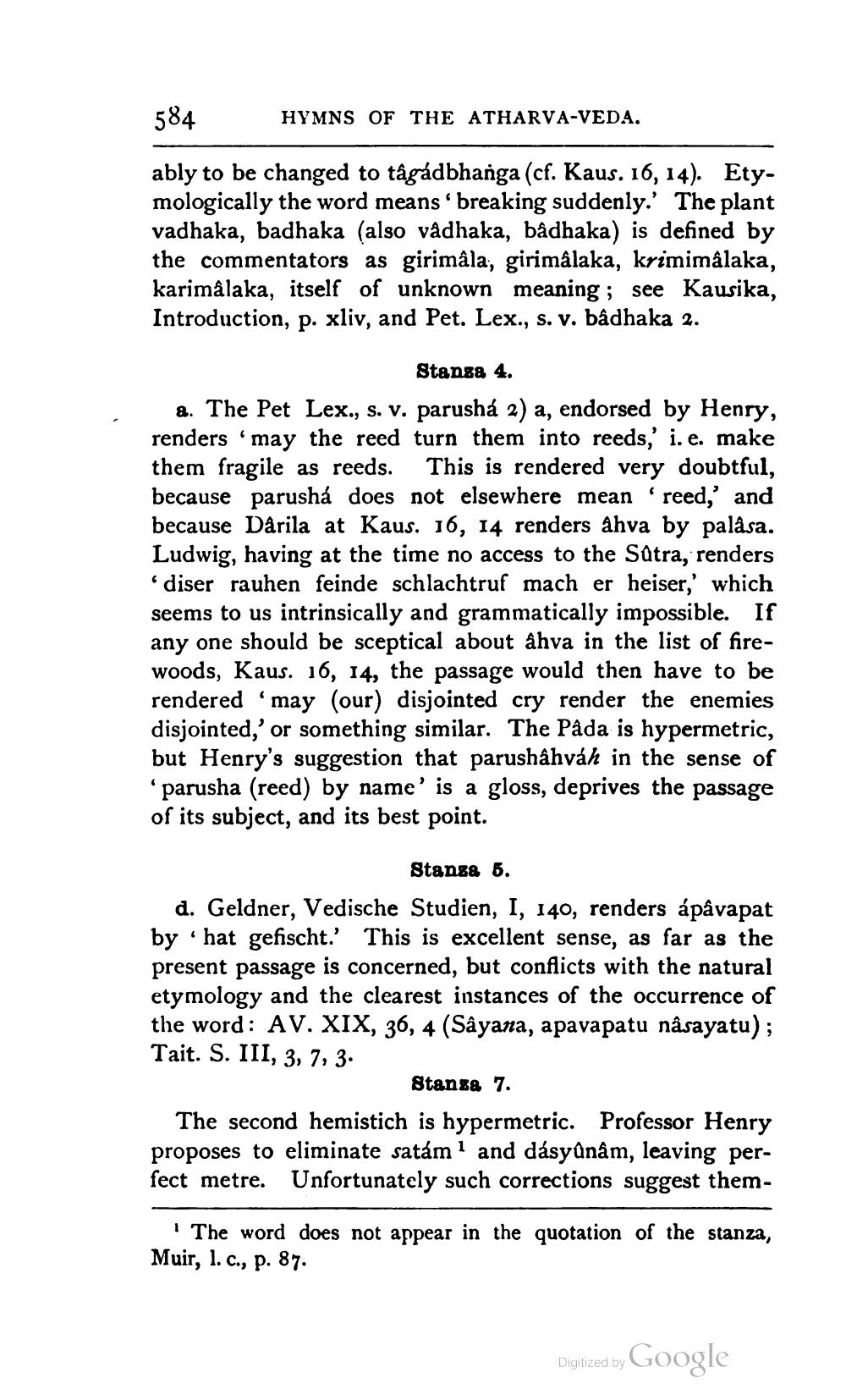________________
584
HYMNS OF THE ATHARVA-VEDA.
ably to be changed to tâgádbhanga (cf. Kaus. 16, 14). Etymologically the word means' breaking suddenly.' The plant vadhaka, badhaka (also vådhaka, bâdhaka) is defined by the commentators as girimâla, girimalaka, krimimalaka, karimålaka, itself of unknown meaning ; see Kausika, Introduction, p. xliv, and Pet. Lex., s. v. bâdhaka 2.
Stansa 4. a. The Pet Lex., s. v. parusha 2) a, endorsed by Henry, renders 'may the reed turn them into reeds, i.e. make them fragile as reeds. This is rendered very doubtful, because parushá does not elsewhere mean 'reed,' and because Darila at Kaus. 16, 14 renders ahva by palása. Ludwig, having at the time no access to the Satra, renders 'diser rauhen feinde schlachtruf mach er heiser,' which seems to us intrinsically and grammatically impossible. If any one should be sceptical about åhva in the list of firewoods, Kaus. 16, 14, the passage would then have to be rendered 'may (our) disjointed cry render the enemies disjointed,' or something similar. The Pâda is hypermetric, but Henry's suggestion that parushâhváh in the sense of 'parusha (reed) by name' is a gloss, deprives the passage of its subject, and its best point.
Stansa 6. d. Geldner, Vedische Studien, I, 140, renders ápåvapat by hat gefischt.' This is excellent sense, as far as the present passage is concerned, but conflicts with the natural etymology and the clearest instances of the occurrence of the word: AV. XIX, 36, 4 (Sâyana, apavapatu nâsayatu); Tait. S. III, 3, 7, 3.
Stansa 7. The second hemistich is hypermetric. Professor Henry proposes to eliminate satám and dásyûnâm, leaving perfect metre. Unfortunately such corrections suggest them
The word does not appear in the quotation of the stanza, Muir, l. c., p. 87.
Digized by Google




